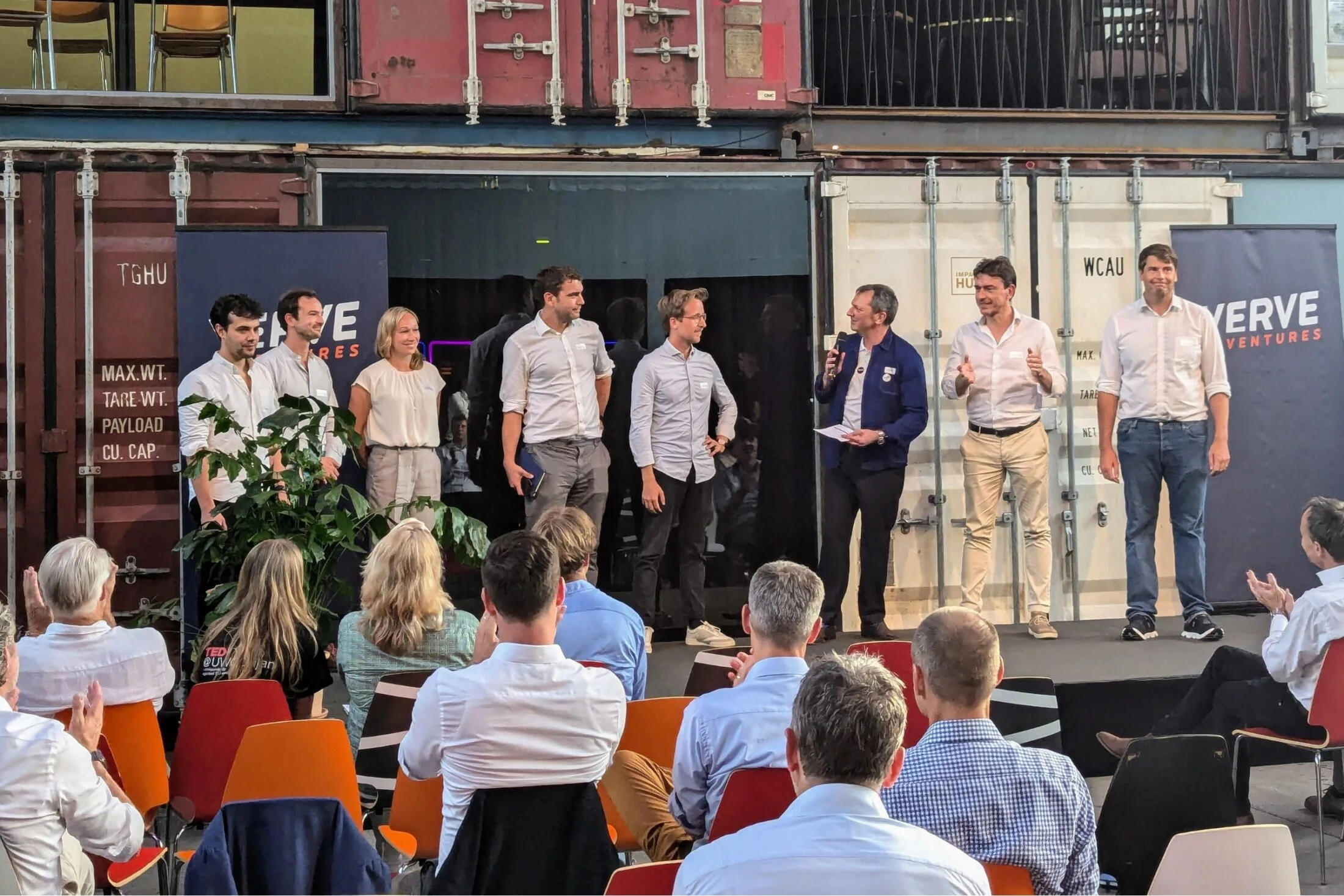The European deep tech sector is not just surviving; it’s thriving. Sphere Magazine‘s editor-in-chief, Jérôme Sicard, sat down with Verve Ventures’ co-founder Steffen Wagner, a visionary in the field, to discuss the continent’s unique strengths, the critical role of deep tech in solving global challenges, and his bullish outlook on the future of European innovation.
Transcript (edited for clarity):
Sphere Magazine: Hello Steffen, thank you for being with us today. Financial markets they they have been quite tough with the technology sector over the past few months. Given the context, why do you remain so bullish about European deep tech?
Steffen: There has been a lot of noise lately, tariffs, interest rates, geopolitics. These have affected listed tech stocks. However, what we are doing at Verve Ventures is focusing on the strategic long game. We are investing in the critical technological building blocks that we need to secure in Europe to ensure future growth and resilience.
A good example is resources and energy. In Europe we have learned the hard way what it means to depend a lot on imports of fossil fuels. That is very risky. We think deep tech is the answer. Take one of our Swiss portfolio companies that turns sunlight into sustainable aviation fuel.
Another Italian company is developing offshore pumped hydro solutions for long-term energy storage, ensuring that electricity will still be available when sunshine and wind are absent.
We see similar foundational work in deep tech areas such as photonic computing and edge computing to power the new generation of electronics and address the major bottleneck of AI today, which is on the hardware side. Of course, we also see it in health and biology, where we talk about cell and gene therapies and biologics.
Sphere: Could you detail the way you define this deep tech segment? What is it made of?
Steffen: Sure. When we are referring to deep tech, we mean companies that are founded on fundamental scientific breakthroughs or at least significant engineering achievements. These companies are unlike shallow tech, classical software-enabled business model innovation. Quite often, these companies also tackle more complex and fundamental problems that, if solved, can transform markets and industries. I give you one concrete example from the field of computing where we’re currently moving from electrons to photons. That means you take light instead of electrical current to perform computations such as the multiplication of matrices, which is an operation relevant for training LLMs or any other type of AI model. Then you get 10 times faster speeds and can reduce energy consumption by a factor of 100 when you run on this type of hardware compared to today’s GPUs.
Sphere: A question about timing: Why should investors turn to private markets to access these breakthroughs, given the cloudy skies? They might prefer the comfort and liquidity of public markets.
Steffen: There are two reasons: performance and diversification. The private markets, especially deep tech, offer tremendous return potential. That is increasingly also recognized by savvy investors such as Larry Frink from BlackRock, who recently pointed out that we are moving away from the classical 60/40 equities and bond portfolio model to a world where we have a 50-30-20 allocation with 20% being in private markets. Why? First of all, almost half of the value creation of our economy, or 50% of GDP, comes from that market segment. Even more importantly, that’s really where the growth is. To take an example of deep tech: If you are backing a breakthrough startup that is developing a new battery chemistry or a new cell therapy, then you are investing in a company that later, hopefully, will become an industry-defining company. BioNTech from Germany is a good example of a company from Europe that has become a multi-billion-dollar company. It has pioneered mRNA vaccines. That company went, within a short time, from a lab project to a 20 billion euro listed company. I have to mention diversification as well. Private companies in deep tech don’t correlate with the latest meme stocks or the latest hypes. This is really about fundamental science. If you just add 10% of private equity and venture capital to your portfolio, you can certainly reduce some of the ups and downs and also improve your returns.
Sphere: Why do you believe Europe is the place for deep tech instead of the US, which is still widely perceived as the number one hub for tech and innovation?
Steffen: I firmly believe that Europe is in a leading position for deep tech. We have excellent scientific talent, we have a long engineering tradition, and we have world-class universities. Europe has given us graphene; it has discovered the Higgs boson; it has given us the mRNA vaccines that I’ve talked about. One thing that usually comes up when people criticize me on that point is the relatively lower amount of capital invested in venture capital here in Europe, but that has also changed. A big part of the money invested in deep tech, around 40%, is coming from government funds or non-dilutive grants. The politicians have woken up. This tailwind is here to stay. However, I still think you need to pick your topics wisely in Europe, because we’re very competitive in some fields, be it in energy or biology. Still, there are other fields where we are less competitive, such as AI software.
Sphere: Thank you, Steffen, for sharing your views today.
Written by
Investors

Our sophisticated investors include visionary family offices, leading wealth managers, institutions, founders, and senior executives. These individuals and organizations are all committed to shaping the next generation of innovation.
More News
Workhero.co, a new way to improve job prospects
Our portfolio firm Firstbird launches WorkHero, a new platform for non-desk workers who lost their jobs. It is based on the idea that recommendations and trust are sometimes more important than just a CV.
Shaping the Digital Future of Venture Capital
Steffen Wagner, co-founder of Verve Ventures, has just been named digital shaper 2019 by Le Temps and BILANZ. Verve Ventures is increasingly recognized as a role model of how the venture capital industry is transforming. In this article, he sets out in four points how Verve Ventures has built a highly scalable digital venture capital platform - and how technology helps looking for startups, making investments available for a wider investor base, and manage the post-investment phase.
Our Mutant Co-Investor
Daphni isn’t just another ordinary venture capital fund, it is a community builder, content producer and a digital platform for LPs very much like Verve Ventures is a digital platform for private investors.


